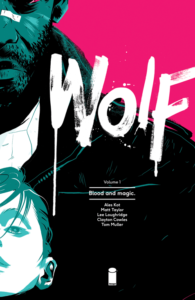As a kid, I never wanted to be in a boys’ club and was always jealous of anything that was exclusively “girls only.”
I can recall many instances of this. Riding in the car, my mother tried to convince me that I might enjoy joining the Boy Scouts. “But, they’re all boys,” I replied, my rejection implicit. Later, when my female friends were allowed to sleep over together after parties while males went home, I rebelled. “Why shouldn’t I be allowed to stay over?” I raged. “They’re all of my best friends!”
It was hard for me to understand the power of either gendered space because, upon reflection, I did not feel strongly aligned to the idea of my maleness. There was nothing about it I particularly wanted – not the strength, or the camaraderie – because I did not have any evidence in my life that maleness could be good or worthwhile. I hated the idea of being a member of the boys’ club. If all you know about being a boy is bullying and irresponsibility – if the only masculinity you witness is toxic – then why would you want to access it?
That’s not to say I was desperate to be a girl. I liked to wear nail polish and own pink things because they were pretty, not out of a sense of gender dysphoria. Upon reflection, I think the idea of a gender continuum , or even simply a third gender, would have been powerful for me to be able to identify with at the time. (So would have a positive male influence, but I think the former would have been more accessible than the latter.)
Instead, I counteracted my boyness by idolizing female influences, none more than Wonder Woman – the only superhero that mattered to me even though Spider-Man shared my name.
Thirty years later, I can appreciate my ability to define my own maleness and that my gender role or expression does not define my gender identity. I also appreciate the power of single sex spaces in certain contexts. At RJ there was a recurring Ladies Night, were all the women would get together for dinner or drinks. Of course, I wanted to attend – these were all my friends out together! Yet, as women in tech, those friends shared an important, connected experience, and even as the most well-meaning male I might interrupt the ability to share that. Also, there may be women who don’t appreciate or benefit from that shared, female-only space.
Now this is a part of my story. Even when I’m accidentally or tacitly included in a boys’ club or male privilege, I don’t experience it in the same way as my peers.
I’m happy about that. I think it’s powerful to be able to access some piece of otherness to influence your viewpoint when you are in the majority. It doesn’t make you The Other, and you still have a lot of work to do to understand the experience of someone who prohibited from enjoying the club or the privilege, but it means you can see outside of your cave into the wider world of sunlight outside.
Oh, hey, and we’re here to review a comic book. [Read more…] about Review: Wonder Woman – Earth One, Vol. 1, by Morrison, Paquette, & Fairbairn

